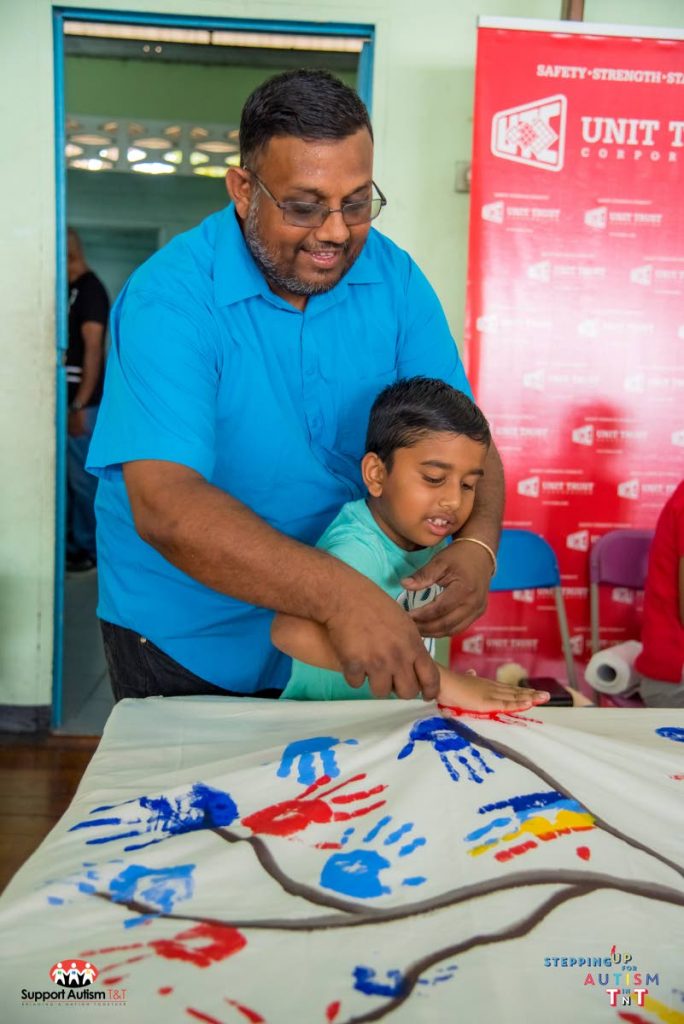Autism and adjusting to covid19 restrictions

DR RADICA MAHASE
Since March 2020 many parents and caregivers have been struggling to help their children with autism to navigate the changes brought about by covid19 restrictions.
The situation has been challenging for everyone generally. However, for a population of special-needs individuals who may thrive on routine and structure and are dependent on therapy and educational activities to help them develop mentally and intellectually, it has been an even bigger challenge.
In many cases, both adults and children with autism are unable to express what they need or how they feel and they become frustrated and have meltdowns. Both child and parents are mentally exhausted by the time they go to bed. Parents just hope for a better day while they feel helpless that they cannot help their children more.
As for the children, they can’t control the meltdowns as the situation may be too much for them to process. It is a challenging situation for everyone and each individual will react differently to the situations.
That said, here are some points to help parents and caregivers:
Changing routines: Don’t force your special-needs children to adjust to changes in their routines; let them do it at their own pace. This means that you might have to deal with the meltdowns, at least initially. As tough as the situation may be, just try to remain calm and patient and give your children time to adjust.
If your children were accustomed to going for therapy but that has stopped once again, then keep explaining that you cannot go right now. They may or many not understand, they might or might not have a meltdown.
Create activities: You can also try distracting them by replacing the therapy session with some activity that your children like. Kristin, a parent of an eight-year-old boy with autism, gives a good example of how she does this.
She said, “When we went into lockdown last year my son Josh became very aggressive. He would have violent meltdowns and try to get out of the door. He just couldn’t understand why we weren’t going by Aunty Clara for his sessions any more.

"At first, we would just wait for the meltdown to pass but then my husband decided to take him out anyway. He would make a big thing of him getting dressed and he would tell Joey that we’re going on an adventure. Everywhere was closed, so we just drove around the neighbourhood and came up with different games. One day he had to find all the white cars on the road, another day he had to point out blue buildings.
"Those little things distracted him and helped him to cope with the changes better.”
Online learning: If your child struggles to cope with online learning, don’t pressure your child to learn this way. Adopt a "home schooling" method. That is, do small activities for shorter times throughout the day.
Kerwin, dad of an 11-year-old boy with autism, suggested the following,
“I am not an expert at raising a special-needs child. but I know my son and I see how much he is regressing because he cannot go for therapy, so I started my own ‘therapy’ with him. I sit with him and we read for five or ten minutes a few times for the day, we do puzzles, we go outside and play with a ball.
“Also, my wife and I make him a part of our daily routine – we let him help us make a sandwich, he gets to put the clothes in the washing machine, he gets to hold the hose when I am washing the car.
"We try to keep him busy and we encourage him to participate in everything we are doing so that he doesn’t get accustomed to just sitting and watching videos all day. If he doesn’t want to do it, we don’t force him but we try to encourage him and let him know that we are happy when he’s doing things with us.”
It is very challenging raising a child with autism during a pandemic and parents/caregivers are required to be flexible in their expectations more than ever now. While the new restrictions have once again disrupted routines, don’t underestimate your child’s ability to cope.
Also don’t overestimate your ability to cope – engage in self-care activities, call upon your support system, take care of your mental health and remember, this too shall pass.
Radica Mahase is the founder/director of Support autism T&T

Comments
"Autism and adjusting to covid19 restrictions"